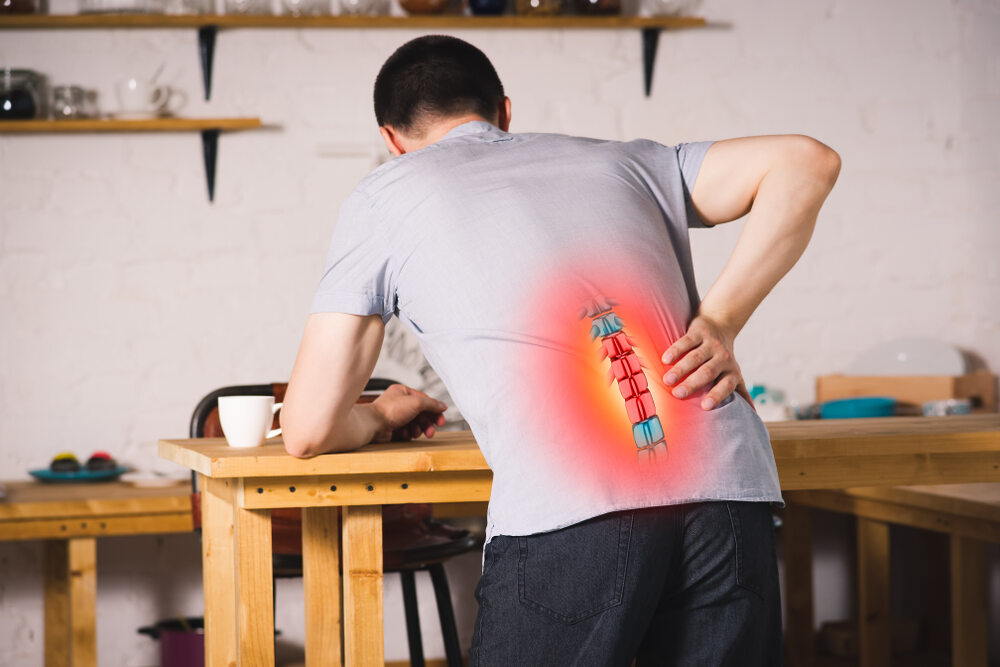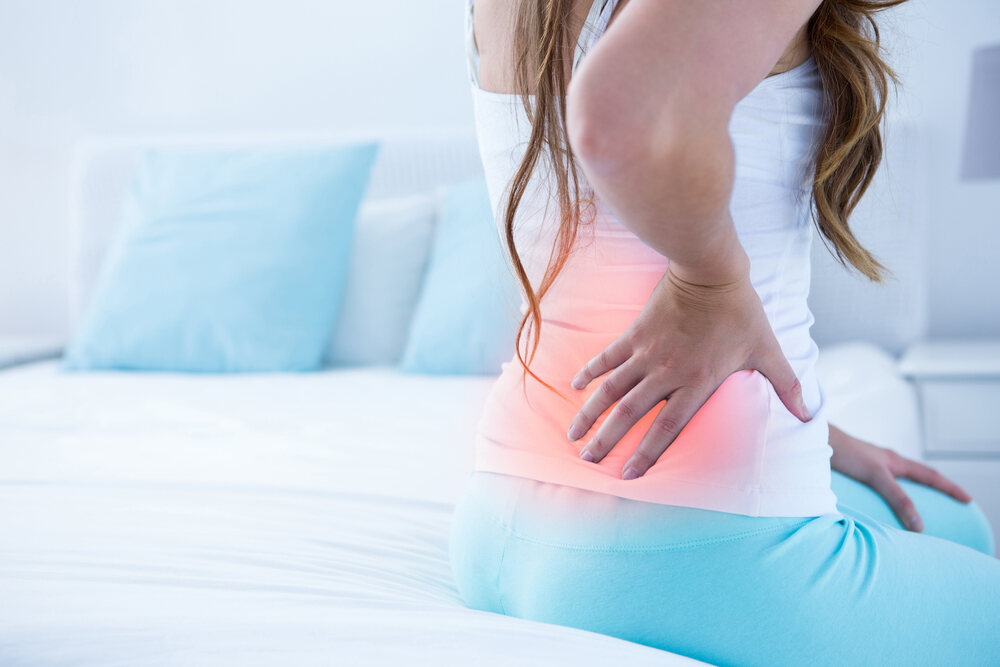If you’ve been experiencing a recent bout of back pain and are wondering what the cause of it is, then you may be surprised to hear the answer “It depends”. But, as the National Institute of Arthritis and Musculoskeletal and Skin Diseases notes, back pain is not only one of the most common medical issues people in the U.S. suffer from, it’s also one with some of the most varied causes, from injury to degenerative conditions of the spine.
If that weren’t enough, back pain with one cause, such as a slipped disc, may present similarly to (or very differently than) back pain caused by another underlying issue, such as a muscle strain.
Back pain can feel like the following:
- A dull & constant ache
- A tingling or burning sensation
- Sudden, sharp pain that may shoot down the back and/or leg(s)
If you’re experiencing troubling and painful back pain, it’s important to get to the root of what the underlying causes are so you can seek proper treatment.
It’s with that in mind that we discuss two of the most common causes of back pain: herniated discs and muscle strains.
Understanding the Basics Between a Herniated Disc vs Muscle Strain
Herniated discs, sometimes also called slipped discs, occur when the soft interior of one of the discs that cushion the spinal vertebrae slips or bulges out of the hard outer shell, or annulus. Picture a molten lava cake interior oozing out of the firmer outer shell.
The result? Pain levels may vary depending on the patient, but slipped discs usually cause:
- Arm or leg pain
- Numbness or tingling
- Weakness
Muscle strains, on the other hand, are also “common in the lower back because it supports the weight of the upper body and is involved in moving, twisting and bending”. They are usually associated with some of these symptoms:
- Pain that occurs while sitting down
- Pain that radiates into your leg (sciatica)
- Pain that worsens with activities like lifting or pushy heavy things, coughing or sneezing, or bending
Diagnosing the Pain: Is It Muscular or Spinal?

While the type of back pain you experience, the location of the pain, and the level of pain depending on the activity you’re engaging in all point to certain causes of back pain, ultimately, it’s easy to confuse different types of back pain with each other and attribute them to the wrong root cause.
This can be problematic because different types of back pain should be treated in different ways, and that’s true for more advanced treatment options, like surgery, and even first-lines-of-defense, like ice and heat therapy.
Ali Rusciano’s informative and article “How to Tell if Back Pain Is Due to a Muscle or Disc”, medically reviewed by Luba Lee, FNP-BC, MS, offers the following tips for ascertaining whether your back pain has been caused by a muscle strain, or if it’s the result of a bulging/herniated disc:
- Muscle strain is the most common cause of back pain. It causes localized pain in your lower back or buttocks, and it’s often worse when you stand and better when you lie down. You might also experience stiffness and reduced range of motion, difficulty maintaining posture, and muscle spasms. Muscle strain is usually caused by twisting or bending awkwardly.
- A bulging or slipped disc presses on nerves in your spine, causing pain in your back and possibly your neck, shoulders, arms, buttocks, or legs. You might also experience numbness or tingling, weakness, and poor balance. Bulging or slipped discs are more likely caused by lifting heavy objects with improper form or certain risk factors like age and weight.
Keeping the above in mind, that is why consulting a medical professional such as an orthopedic spine specialist is so crucial.
Only someone with the right training and experience can provide a definitive diagnosis and appropriate treatment plan, keeping in mind your medical history and symptoms, as well as providing a thorough physical examination and undergoing tests such as MRIs, X-rays, or CT scans.
Get Relief from Back Pain: Schedule Your Diagnostic Appointment Now
Ready to experience a life that’s free of back pain? We want to provide that to you! Reach out to schedule your next diagnostic appointment with Dr. Baig. We’re here to help you learn about your treatment options and ultimately, to restore your quality of life.



Recent Comments